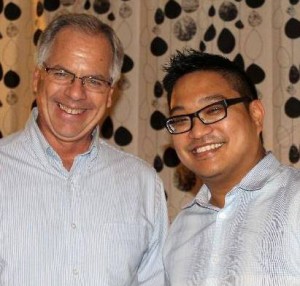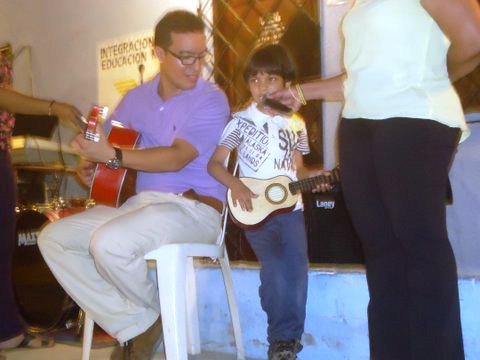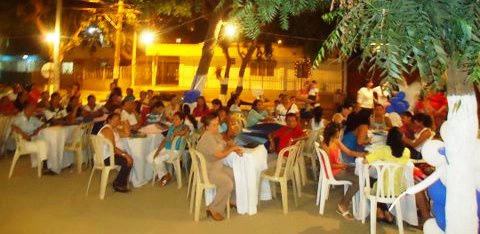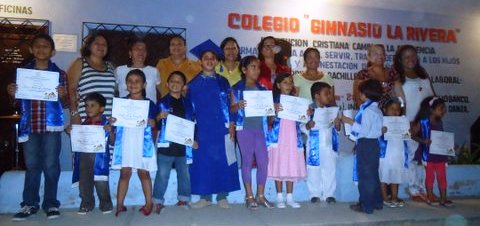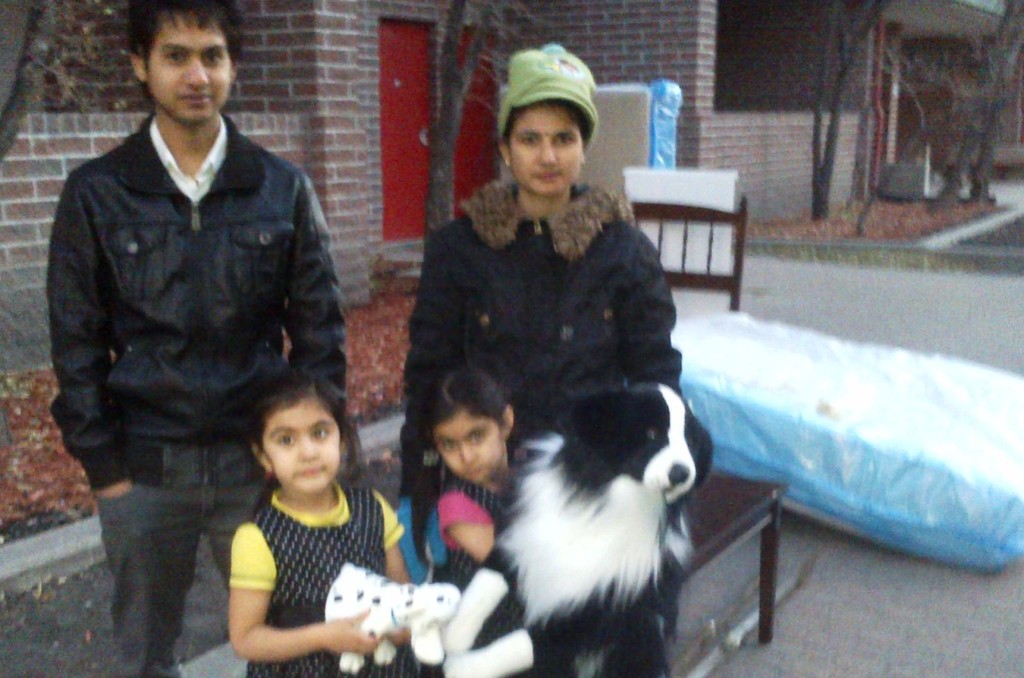Dear Brothers and Sisters in Christ,
 I’m sometimes asked why we no longer refer to God as a “family.” Isn’t that term appropriate, given that there is a Father and a Son who are bringing “many sons to glory”? My answer is that whereas the analogy of God as a family works at some levels, we must be very careful because it can lead in directions that distort the biblical revelation of the one God who is Father, Son and Holy Spirit.
I’m sometimes asked why we no longer refer to God as a “family.” Isn’t that term appropriate, given that there is a Father and a Son who are bringing “many sons to glory”? My answer is that whereas the analogy of God as a family works at some levels, we must be very careful because it can lead in directions that distort the biblical revelation of the one God who is Father, Son and Holy Spirit.
The analogy of God as a family can be used in a limited way to indicate that just as there are relationships between family members, there are relationships in the triune God. However this analogy is easily misunderstood as indicating that just as in a family there are separate persons who each have their own being, so God is made up of persons with separate beings.
But that is not the case. What is true of human relationships in families is not necessarily true of God, who is not a creature. While there is a triune relationship within God’s one being, that relationship is not between separate beings. The three “persons” of the Trinity, through their absolutely unique relationships, constitute the one being of God in a way that is quite unlike a human family.
The uncreated God cannot be explained in terms of a created human family. Trying to do so amounts to mythology and even idolatry.
Most of us probably are familiar with the Hebrew word Elohim. It is one of several names used for God in the Old Testament. In our former teaching, we mistakenly claimed that Elohim is a “uniplural” noun—like the noun “family.” Following this line of reasoning, we erroneously concluded that there are two separate Gods (Father and Son), comprising a “God family.”
From the Akkadians and Egyptians to the Greeks and Romans, pagan religions have taught a plurality (pantheon or family) of gods. The Greeks even constructed a family tree for their pantheon. [1] This pagan conception is known as polytheism (many gods, like the pantheon of Egyptian gods pictured below), or bitheism or ditheism in the case of two gods.
In contrast to the polytheistic misconceptions of paganism, God revealed himself to Israel as one (single, exclusive) God. He commanded his people: “You shall have no other gods before me” (Exodus 20:3). “Before me” is literally, “before my face”—a Hebrew idiom meaning “beside me” or “in addition to me.” [2] Though Elohim is a plural noun, it was never understood as a reference to many gods, and certainly not a reference to a family of gods.
The pantheon of gods in pagan religions ruled the realm of the gods, the supernatural and, ultimately, the human world. Typically one of these gods was designated head of the pantheon and, like the other gods, would have at least one consort (female partner). But God forbade Israel to think of him in these polytheistic and sexual terms. Yahweh definitely is not the head of a pantheon. He has no consort. There are no other gods in his presence [3]. Therefore, Moses proclaimed: “Hear , O Israel, the LORD [Yahweh] our God [Elohim], the LORD [Yahweh] is one” (Deuteronomy 6:4).
Old Testament Hebrew does not support the idea of a “God family.” The nouns used for God’s names and titles are coupled with singular verbs. For example, it is said in Genesis 2:7 that “the Lord [Yahweh—a singular noun] God [Elohim—a plural noun] formed [a singular verb] a man from the dust of the ground.” Though Elohim is a plural noun, the Bible almost always couples it with a singular verb.
Note, however, that while emphasizing the unity and uniqueness of one God, Elohim does allow for the idea of a plurality of persons in the one Godhead. We see this hinted at in Genesis 1:2, 26: “Now the earth was formless and empty, darkness was over the surface of the deep, and the Spirit of God was hovering over the waters…. Then God said, ‘Let us make mankind in our image, in our likeness…'” This rich linguistic character of Elohim is found only in Hebrew and in no other Semitic languages—not even in Biblical Aramaic. [4]
Note also that, as is true in the English language, Hebrew has both singular and plural nouns. However, quite unlike English, Hebrew is able to specify singular, dual and plural meanings for nouns. [5] For example, in the Old Testament, God is named Eloah (a singular noun) 57 times; he is named Elohim (a plural noun referring to three or more) 2570 times; and he is named Elohiam (a plural noun referring to two) exactly zero times.
The nature and usage of the plural noun Elohim in biblical Hebrew, taken together with the singular verbs that are coupled with it, while allowing for the possibility of some kind of plurality in God, does not allow for separate beings who make up a pantheon (family) of gods. When we add to this the Old Testament’s emphatic teaching that there is only one God, it becomes clear that our former teaching that God is a family of two separate Gods is not biblical. Even though the Hebrew Scriptures hint at a plurality of persons in the Godhead, the notion of there being two separate “god beings” is ditheism (a form of polytheism)—a belief expressly prohibited by God himself.
God is one being with a plurality of what we refer to as divine “persons.” This is why I say we should be very careful in saying that “God is a family.” The truth about the nature of God, which is only hinted at in the Old Testament, is revealed to us fully by Jesus Christ. Given that revelation, we can say with confidence that the Father, Son and Holy Spirit live in a loving, eternal relationship as one Triune God—a relationship in which, by grace, we have been included. This wonderful truth of our participation and inclusion is helpfully explained by Gary Deddo in a two-part article. We published part one last week and you’ll find part two in this issue of Weekly Update.
Your brother in Christ,
Joseph Tkach
PS. For those interested in further reading on this topic, here are the sources I’ve referenced in my letter.
[1] See the chart at http://en.wikipedia.org/wiki/Family_tree_of_the_Greek_gods.
[2] H.D. Spence: The Pulpit Commentary: Exodus Vol. II. Logos Research Systems, S. 131.
[3] Victor Harold Matthews; Mark W. Chavalas; John H. Walton: The IVP Bible Background Commentary: Old Testament. Electronic ed., S. Ex 20:3.
[4] Gustav Oehler: Theology of the Old Testament, p. 88.
[5] E. Kautzch, ed.: Gesenius’ Hebrew Grammar, p. 244.


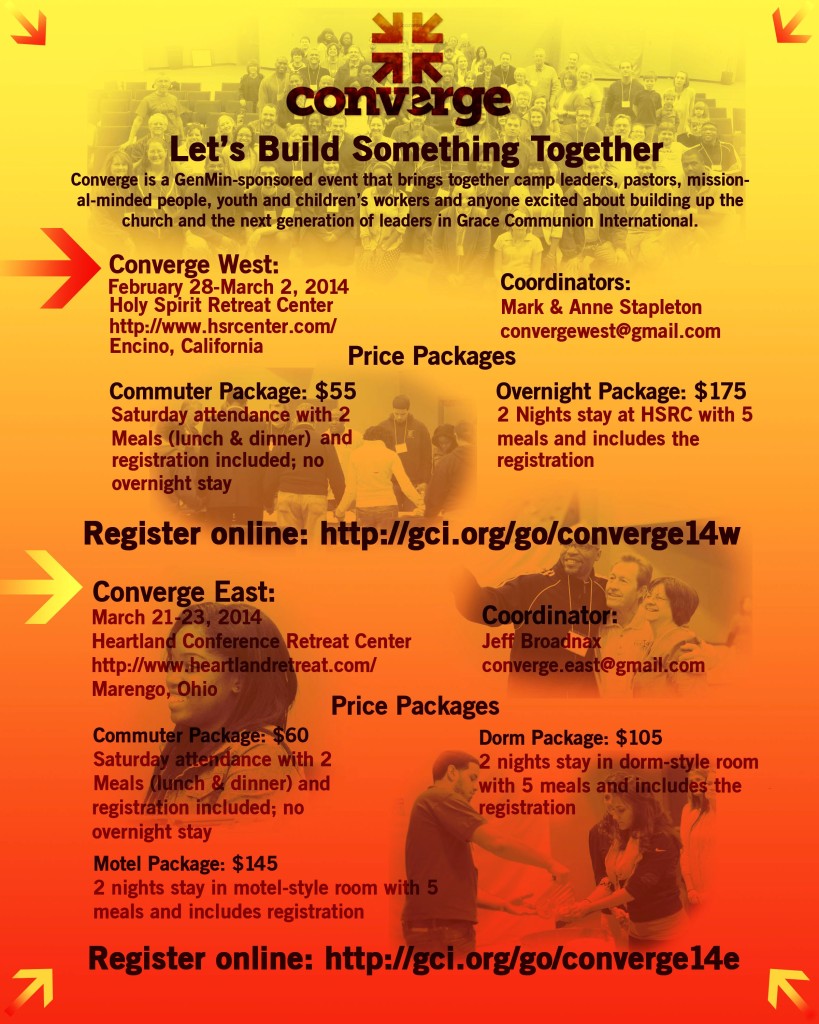
 A new GCI church was launched recently in Masterton, New Zealand. Of the 25 people who attended the first service (pictured below), most came from the nearby community, including friends and colleagues of Manny Ornejas (pictured at right) who helped plant the church. Manny had pastored in the Philippines prior to moving to New Zealand to work as a beekeeper. He found a sizeable Filipino population in Masterton and discovered that many of them do not have a church home. The new church is reaching out to this group of unchurched people.
A new GCI church was launched recently in Masterton, New Zealand. Of the 25 people who attended the first service (pictured below), most came from the nearby community, including friends and colleagues of Manny Ornejas (pictured at right) who helped plant the church. Manny had pastored in the Philippines prior to moving to New Zealand to work as a beekeeper. He found a sizeable Filipino population in Masterton and discovered that many of them do not have a church home. The new church is reaching out to this group of unchurched people.

